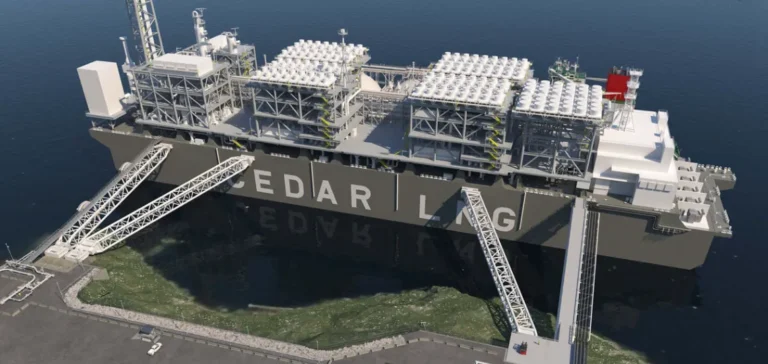The Haisla Nation, established for over 9,000 years on Canada’s northwest coast, now holds a majority stake in the Cedar LNG liquefied natural gas (LNG) export terminal in British Columbia. The C$4bn ($2,96bn) project, scheduled to start up in 2028, is being developed with Calgary-based Pembina Pipeline. It is the first LNG project in the world to be majority owned by an Indigenous community.
An unprecedented partnership and financing model
The Haisla Nation holds 50.1% of Cedar LNG, enabled by early access to the Coastal GasLink pipeline and near-unanimous community support. The project is financed 60% through a construction loan from a bank syndicate and 40% via equity contributions. To fund its share, the Haisla secured a record C$1,4bn ($1,03bn) loan from the First Nations Finance Authority (FNFA), a non-profit organisation owned and controlled by First Nations governments.
This loan is the largest ever issued by the FNFA, according to project representatives. Nearly 93% of the community approved the borrowing in a ratification vote. Debt repayment could take around a decade before material revenues are distributed within the community.
Governance and stability considerations
Cedar LNG’s board comprises four Haisla directors and four Pembina directors in a balanced governance structure. Initially considered minority partners by Pembina, the Haisla insisted on becoming majority shareholders. According to Pembina, this decision proved critical to securing the project’s long-term viability.
The partnership followed the cancellation of Pembina’s Jordan Cove project in the United States. For the Canadian company, Cedar LNG represents a strategic pivot in LNG, supported by a more stable regulatory environment and higher social acceptability.
A mixed national landscape
In Canada, 73% of major energy projects are located on or near Indigenous territories. However, Indigenous equity participation does not guarantee unanimous support. In February, TC Energy cancelled an agreement to sell a minority stake in its Canadian gas pipeline system, without providing reasons.
The Ksi Lisims LNG project, supported by the Nisga’a Nation, highlights these divisions. Other Indigenous groups, such as the Gitanyow Chiefs, oppose the project over potential impacts on wildlife and territory. Despite federal approval obtained in September, legal challenges are being considered.
Indicator of structural trends
According to law firm Fasken, 165 energy and infrastructure projects in Canada are fully or partly owned by Indigenous communities. About 29% of these equity agreements have been announced over the past two years, indicating an acceleration of this investment model.
Maureen Nyce, appointed chief of Cedar LNG in July, said future proceeds, once debt is repaid, will be directed to housing, training, healthcare and social support programmes. She did not provide a precise estimate of expected revenues but said the project carries structural significance for her community.






















